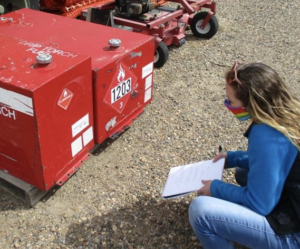 When audits are initiated in response to an outside requirement to perform an audit, simply obtaining a competent audit at a competitive cost may be the perfect solution. In these cases, audit quality isn’t as much of a concern as clearing the pass-fail bar as efficiently as possible. Of course, the audit must be performed in a professional manner and the results need to be adequately documented in a report. The federal government would call this the “lowest cost, technically acceptable” standard. If this sounds like you, your path forward is fairly clear and you should probably skip over the rest of this post.
When audits are initiated in response to an outside requirement to perform an audit, simply obtaining a competent audit at a competitive cost may be the perfect solution. In these cases, audit quality isn’t as much of a concern as clearing the pass-fail bar as efficiently as possible. Of course, the audit must be performed in a professional manner and the results need to be adequately documented in a report. The federal government would call this the “lowest cost, technically acceptable” standard. If this sounds like you, your path forward is fairly clear and you should probably skip over the rest of this post.
For those who actually want an environmental compliance audit for their own — perhaps more nuanced — reasons, pinning down the value of an audit can be more complex. The best starting place is often to define why you want an environmental compliance audit at all. These reasons (or goals) should be documented and discussed with the team that is planning the audit or audit program to be sure everyone agrees on the point of it all (spoiler alert: They probably don’t). Once you have clarified why you want an audit, you might ask yourselves some questions like these examples:
- Am I completely confident deficiencies identified in our audits are applicable and accurate?
- I want to be confident we uncover as many of our compliance deficiencies as possible, so does our audit approach provide that level of investigation?
- Do our audits tell me if our internal training and directives are being implemented fully?
- Do our auditors have the experience to reveal underlying causes of noncompliance, or are we simply fixing what’s wrong today?
- Do our audits provide guidance on how to correct compliance deficiencies to our facility personnel?
- Do our managers and staff believe our audit process is reliable, respectful, and professional?
- How can I maximize the information transfer (training) our operations managers and facility staff receive during and after our audits?
- Are written audit results prepared in a way that promotes understanding of requirements, builds confidence in the audit process, and simplifies corrective actions?
Environmental compliance audit programs can offer great benefits, but organizations must consider what they want out of the program and decide what audit approach really offers the best value.